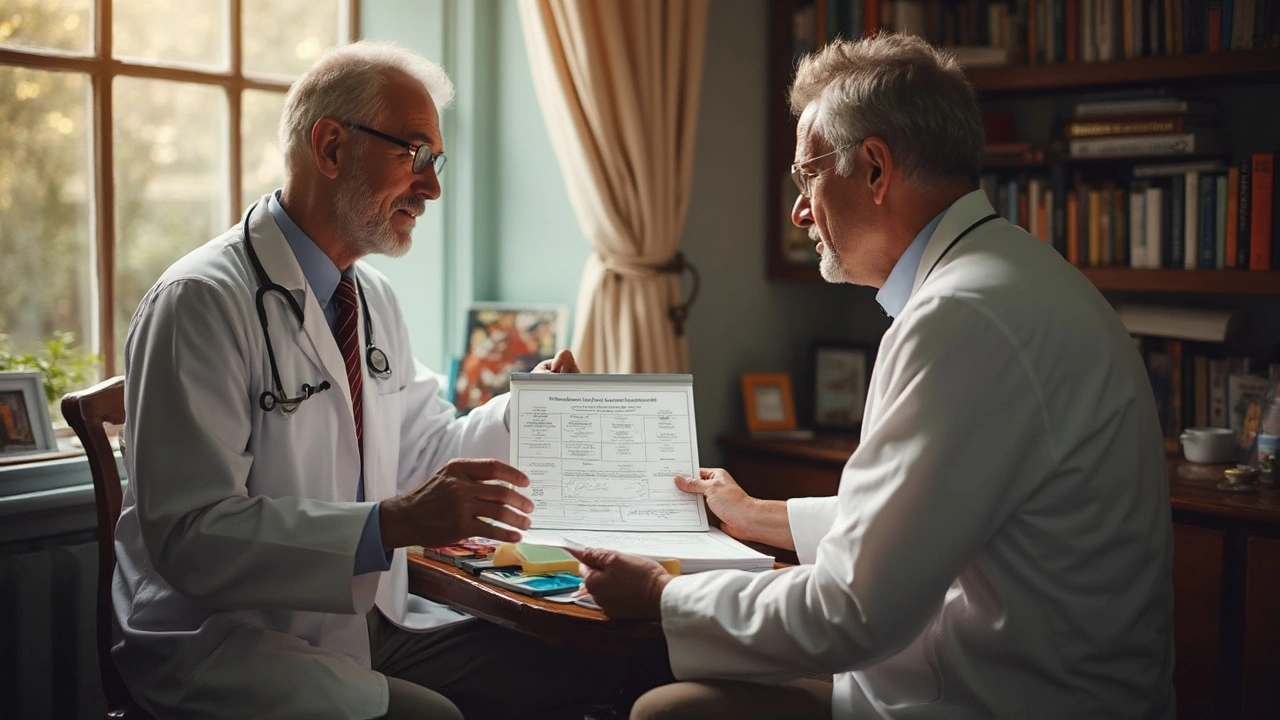Cholesterol medications: what they do and which might suit you
Statins reduce the risk of heart attacks by about a quarter to a third for many people — that’s why they’re the first-line drug for high cholesterol. But statins aren’t the only choice, and the right option depends on your risk, LDL target, and how you tolerate medicine.
Here’s a clear, no-nonsense look at the common drug types, how they work, what to watch for, and practical tips to stay on track.
Common types and how they work
Statins (atorvastatin, simvastatin, rosuvastatin) block cholesterol production in the liver. They work well for most people and are proven to cut heart attacks and strokes. Ezetimibe lowers cholesterol by reducing intestinal absorption; it’s often added if statins alone aren’t enough.
PCSK9 inhibitors (injectable drugs like evolocumab) sharply lower LDL and help people with very high risk or genetic high cholesterol. Bile acid sequestrants (cholestyramine) trap cholesterol in the gut — useful if other drugs aren’t tolerated. Fibrates focus more on triglycerides, and niacin raises HDL but is used less now because of side effects and mixed results.
Side effects, monitoring, and interactions
Muscle aches and mild stomach upset are the most common statin complaints. A true muscle injury is rare but needs quick attention. Most doctors check a baseline liver test and repeat if symptoms appear; routine frequent liver testing isn’t always needed.
Watch for drug interactions — grapefruit juice and some antibiotics can raise statin levels. Tell your clinician about every medicine and supplement you take. Statins should not be used if you’re pregnant or planning pregnancy.
How will you know a drug is working? Your LDL cholesterol is the main number. Your doctor will set a target based on your heart disease risk and check a lipid panel after starting or changing therapy.
Cost matters. Generic statins are cheap and effective for most people. If you need ezetimibe or a PCSK9 inhibitor, check insurance and manufacturer assistance — discounts are often available.
Practical tips that help:
- Take your statin at the time your doctor recommends — some are best at night, some any time.
- If you get muscle pain, don’t stop cold without talking to your doctor; they can try a lower dose or a different statin.
- Combine medicine with diet and exercise — drugs lower risk faster, but lifestyle multiplies the benefit.
- Keep a copy of your last lab results and medication list for every visit — it speeds decisions and avoids repeats.
Choosing a cholesterol medication is a team effort. Ask specific questions: What LDL target do I need? What side effects should I expect? If a medicine causes trouble, there are usually alternatives. Your doctor can match the drug to your risk, budget, and daily life so you get protection without overload.
- March 20, 2025
- Comments 10
- Medications and Supplements

